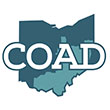Head Start in Rural Communities
Head Start is a federally funded program that supports early learning, health, and family well-being for children ages birth to 5. While it began as a program for preschoolers (ages 3-5), it has expanded to include Early Head Start which serves pregnant woman, infants, and toddlers. The overall program seeks to promote school readiness by supporting optimal development in all areas of a child’s life.
According to a recent study conducted by the Center for American Progress, many rural counties would not have a child care center if it were not for Head Start. This means that hundreds of thousands of children would not have access to any early learning prior to Kindergarten. We know how detrimental this is for young children from low-income homes where many enter Kindergarten already two years behind their more fortunate peers. This also means that many young children don’t have access to the other services provided through Head Start, such as medical and dental care.
Access to appropriate early care and education is an important step in making sure all of our children start life ready to succeed and Head Start is one of the clearest examples of success in our country. Having been in operation for over 50 years, there is a plethora of data that has followed families and children who have participated in the program noting gains in social-emotional and cognitive development. They are also more likely to enter Kindergarten ready to learn and stay on track throughout high school.
We love that Head Start is such a valuable asset to families and young children in all communities! To learn more about Head Start, visit their website at https://www.nhsa.org/.
